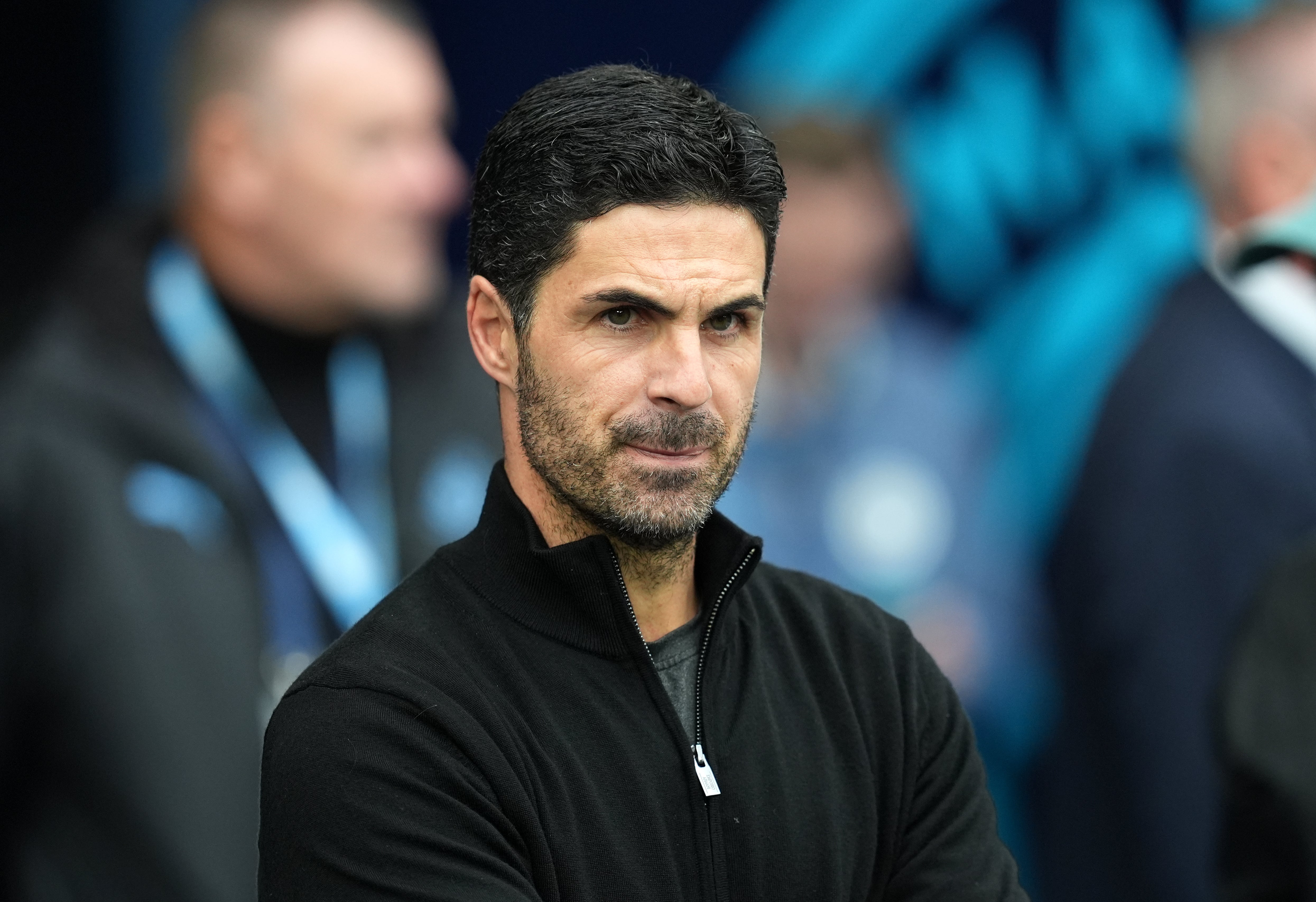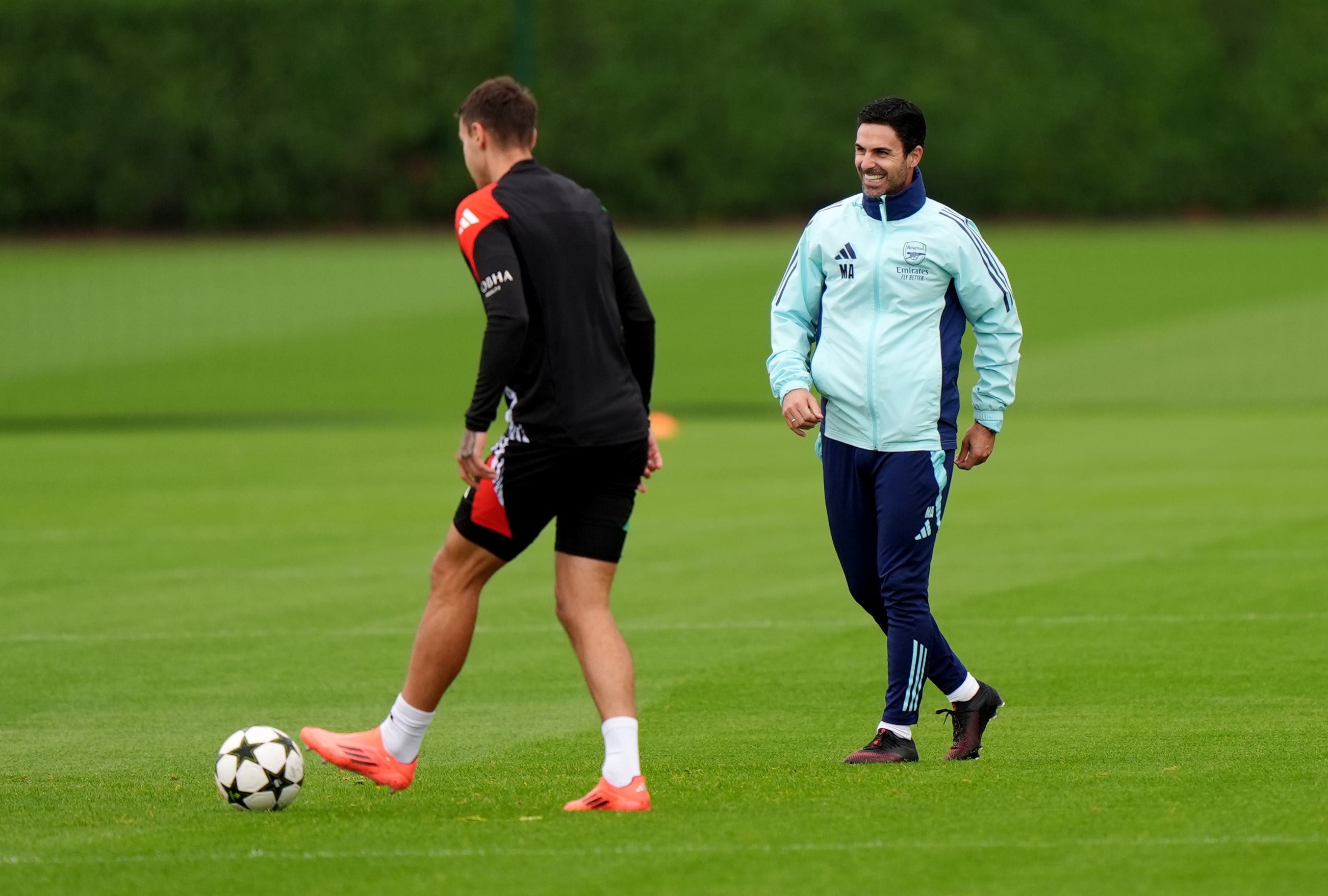It was an approach that Mikel Arteta almost immediately dismissed, although there was a moment’s consideration due to a previous connection. In the summer of 2023, Paris Saint-Germain investigated whether the Basque would be interested in succeeding Christophe Galtier as coach. He’d already made Arsenal a competitive team again, and that’s one reason why he was never going to go. Arteta ultimately wants to be the first manager to bring the London club to glory in the Champions League, the competition in which they host PSG on Tuesday.
The former midfielder was actually on loan at PSG when they won their last European trophy, if it can be even called that, given it was the 2001 Intertoto Cup. That now defunct qualification competition was shared with Aston Villa and Troyes, with Arteta taking his place on the bench for an away-goal win against Roberto Baggio’s Brescia. This was the idiosyncratic nature of PSG at the time, that also represented a key juncture on the 42-year-old’s circuitous route to Arsenal.
A young and carousing Ronaldinho obviously stood out for Arteta as a teammate, which also spoke to the sense of spectacle that ran through PSG even then. The club were owned by media company Canal+, who exemplified one of the dominant ownership models at the time, in the same way Qatar Sports Investments do now. That was part of a trend influencing European football and the Champions League, all following on from Silvio Berlusconi at AC Milan.
In what was a period that genuinely had more competitive diversity and balance in football, stars like Ronaldinho, Nicolas Anelka and Jay-Okocha were complemented by Frederic Dehu, Talal El Karkouri, Hugo Leal and Didier Domi. It was all under legendary French midfielder, Luis Fernandez. Among the names that became famous later were Gabriel Heinze, Mauricio Pochettino and – of course – Arteta himself.
“It was my first professional experience,” the Arsenal manager said on Monday of his 18 months in Paris. “It was an unbelievable time that I spent there and I loved every minute of it. I will always be grateful to the club and Luis Fernandez because he was the one who believed in me when I was 17, 18 years old. I played professional football and from there it was a platform to share an experience in a club of that size and a city that is probably the most beautiful in Europe. It was an experience that will stay with me forever, with teammates who helped me and shaped who I wanted to be as a player, and ignited something in me to become a manager in the future. There were some very important individuals in that part of my career.”

It also gave some important lessons. As the central midfielder, Arteta often found the space in front of him entirely vacated by Okocha and Ronaldinho. He once laughed that he’d turn around after PSG had lost the ball and “have an airport next to me to run to”.
Arteta did his job, though, as PSG had the best defensive record in Ligue 1 that season. They conceded just 24 goals, but still finished fourth. Imbalances in the team also saw them go out of the Uefa Cup third round on penalties to Rangers, in another indication of a very different time.
That was to prove especially crucial in Arteta’s career, as the Scottish club took note of the midfielder’s performance and immediately made moves to try and sign him. By the end of the season, they were actually outbidding PSG to permanently sign him from Barcelona. That even led to controversy as the French club complained that Rangers had announced the signing before the end of Arteta’s “clause of exclusiveness” for his PSG loan from Barcelona.
“I wanted to stay there but I was at that moment owned by Barcelona and they didn’t find an agreement and then I had to do something else,” Arteta explained this week. “This is football.”

Or, at least, that was football then. It is now utterly unthinkable for Rangers to both knock PSG out of Europe and to outbid them.
Arteta has since admitted that the nature of the Scottish league meant he had to think about the game in a new way. More of an edge was added. Although a midfield graduate of Barcelona’s academy, Arteta knew he wasn’t quite in that elite class with peers such as Xavi, so had to add a greater steel and discipline to his game. Some might now quip they were the “dark arts”.
Arsenal’s own Cesc Fabregas once felt the brunt of it when Arteta was at Everton, being robustly tripped after he skipped through. Arteta is said to have laughed at the memory when Fabregas reminded him years later. “I needed to do something!”
Arteta actually struggled in one season back at Real Sociedad in 2004-05, which led then Everton manager David Moyes to act on praise from Scotland and initially take the midfielder on loan. It would prove lasting, in so many ways. Arteta was in England to stay, eventually moving to Arsenal when Arsene Wenger endured a recruitment crisis in August 2011.
It was just two months before that, in June of that year, that QSI bought PSG. They immediately made a move for Wenger, and he was for years the top target to take over the first team. It was ironically at this exact time that arguments about whether he was past his best began. Arteta got frustrated with how soft Arsenal could be, how they could never show the consistency required. He would vow that his own teams didn’t suffer the same flaws.

PSG for a long time didn’t care. They wanted the name. That was the guiding “philosophy” for almost a decade, as they signed star after star. And suffered Champions League failure after failure.
This was what eventually saw them turn to Arteta. After PSG had finally abandoned “flashy, bling-bling”, actually a year after president Nasser Al-Khelaifi declared that, they wanted to build a more modern side built on a younger profile in a way the game’s tactical trends were progressing. Arteta was identified as perfect for this, given his work in Arsenal. He himself had meanwhile been given considerable advice on such coaching issues over the years, from none other than previous PSG teammate Pochettino.
The French club ultimately went for an ideologically similar coach in Luis Enrique, after Arteta quickly let it be known he has much bigger ambitions for Arsenal. That’s why he stayed, but all of these seemingly innocuous moments from the past now influence Tuesday’s game.
At the least, from what we know of the managers and their attitude to pressing, neither team will allow an “airport-sized” space of the pitch to be free.

